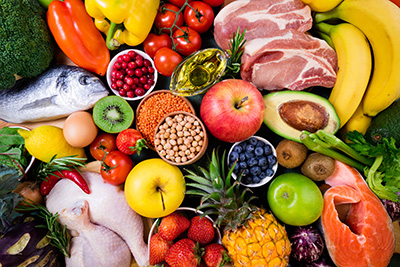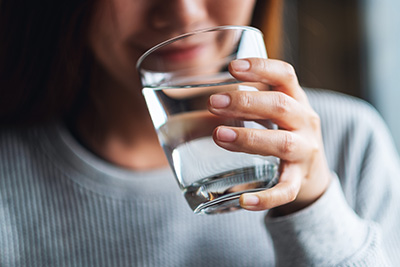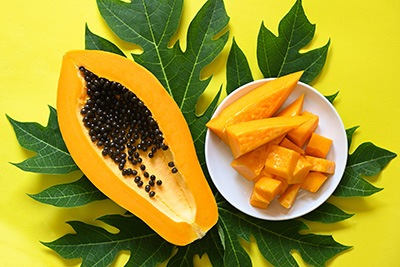| Item | Price | Qty | Total | |
|---|---|---|---|---|
 Loading Cart...
Loading Cart...How to Improve Your Platelet Count and Prepare for PRP Therapy
Platelets are essential cells in our blood that help with clotting and healing. Maintaining a healthy platelet count is key to overall health, but various factors such as diet, lifestyle, and even medications can influence platelet levels. If you’re preparing for Platelet-Rich Plasma (PRP) therapy or simply want to understand how to improve your platelet count, we will walk you through the steps you can take to support your body’s natural processes.
What Is a Healthy Platelet Count?
Your platelet count is a crucial part of your blood work, typically ranging between 150,000 to 450,000 platelets per microliter of blood. Platelets are responsible for clotting, helping to stop bleeding when injuries occur. Keeping your platelet count within the healthy range ensures that your body can heal effectively and prevent unnecessary bleeding.1
How to Improve Your Platelet Count
If you’re concerned about a low platelet count or just want to make sure your platelets are functioning optimally, there are several ways you can naturally support platelet production.
1. Eat a Nutrient-Rich Diet

A balanced diet rich in the right vitamins and minerals is a great first step in improving your platelet count. These nutrients support the production of healthy platelets and other blood cells.
- Iron: Iron-rich foods such as spinach, legumes, poultry, and red meats can help boost your blood health. Iron is essential for making hemoglobin, which plays a role in red blood cell production.2
- Folate: This B-vitamin is necessary for cell division, including the production of platelets. Good sources of folate include leafy greens, citrus fruits, beans, and fortified cereals.3
- Vitamin B12: This vitamin helps in the production of healthy blood cells. Incorporate foods like eggs, fish, dairy, and fortified plant-based products for a boost in B12.4
2. Stay Hydrated

Drinking plenty of water is not just important for overall health; it’s actually essential for blood circulation and platelet function. Staying hydrated helps your blood flow more smoothly, ensuring that your platelets can do their job effectively.
3. Incorporate Platelet-Boosting Herbs

Certain herbs have been studied for their ability to support platelet production:
- Papaya Leaf Extract: Used for centuries, especially in dengue-endemic regions, papaya leaf extract may help boost platelet levels. Some studies support its effectiveness, but it’s important to consult with a healthcare professional before starting any supplements.5
4. Exercise Regularly

Moderate physical activity can stimulate circulation and improve the overall function of your platelets. Aim for at least 30 minutes of exercise most days of the week to keep your blood flowing and platelet levels healthy.
5. Manage Stress

Chronic stress can negatively affect your platelet count by increasing cortisol levels, which can interfere with your body’s natural ability to produce platelets. Incorporating stress-reduction practices such as yoga, deep breathing, or even mindfulness meditation can help maintain a healthy platelet count.
What Hurts Platelet Count?
While many factors can support platelet health, there are also certain things that can decrease platelet levels or prevent proper platelet function.
-
Medications and Supplements
Some medications, especially blood thinners (like aspirin and warfarin), can lower your platelet count. Research suggests that prolonged exposure to high doses of vitamin C may alter platelet function6, potentially affecting how blood clots form, though short-term use appears to have minimal impact. If you're concerned about how your medication or supplements may be affecting your platelet count, always consult your doctor before making any changes. -
Alcohol and Toxins
Excessive alcohol consumption can interfere with platelet production7 by impairing your bone marrow’s ability to produce platelets. Likewise, exposure to harmful substances such as pesticides and heavy metals can also lower your platelet count over time.
How to Correct Platelet Deficiencies
If you're dealing with low platelets, consider these steps:
- Consult Your Doctor: If you suspect low platelets, a healthcare provider can recommend tests and treatments, such as iron supplements, tailored to your needs.
- Eat a Platelet-Boosting Diet: Incorporate nutrient-rich foods to support blood health and boost platelet production.
- Regular Check-Ups: Ongoing medical check-ups help identify underlying conditions, such as autoimmune diseases or blood disorders, that could affect platelet levels.
PRP Therapy: A Powerful Tool for Healing
PRP therapy is used to stimulate healing in injured tissues, including joints, tendons, and even skin. The process involves drawing your blood, separating out the platelets, and re-injecting them into areas that need regeneration. For PRP therapy to work effectively, you need to have an adequate number of platelets. If your platelet count is low, it may not be as effective, and your healthcare provider may suggest ways to improve it first.
Preparing for PRP Therapy
Before undergoing PRP therapy, it's important to ensure your platelet count is at an optimal level. Consult with your healthcare provider to discuss any concerns, especially if you’re taking medications or supplements that could interfere with platelet production. With the right diet, lifestyle changes, and medical supervision, you can increase your platelet count and ensure that PRP therapy is as effective as possible.
Ready to Take the Next Step?
If you’re a healthcare provider, call us at (844) 377-7787 (DR-PRP-US) to learn how the Dr. PRP USA system can help you achieve the highest platelet recovery and deliver outstanding results for your patients.
If you’re a patient, find a PRP provider near you who offers PRP therapy with the Dr. PRP USA system.
References
- Johns Hopkins Medicine. (2023, January 5). What are platelets and why are they important? Johns Hopkins Medicine. https://www.hopkinsmedicine.org/health/conditions-and-diseases/what-are-platelets-and-why-are-they-important
- American Red Cross. (2021, November 10). The importance of iron in your body. American Red Cross. https://www.redcrossblood.org/local-homepage/news/article/iron-in-blood.html
- Harvard T.H. Chan School of Public Health. (n.d.). Folate (folic acid) – vitamin B9. The Nutrition Source. https://nutritionsource.hsph.harvard.edu/folic-acid/
- Cleveland Clinic. (2022, June 8). Vitamin B12 benefits and best sources. Cleveland Clinic. https://health.clevelandclinic.org/vitamin-b12
- Hampilos, K., Corn, J., Hodsdon, W., Wagner, P., Roop, R., Elise, A., & Troy, L. (2019). Effect of Carica papaya leaf extract on platelet count in chronic immune thrombocytopenic purpura: A case series. Integrative Medicine: A Clinician's Journal, 18(5), 30–35. https://pmc.ncbi.nlm.nih.gov/articles/PMC7219447/
- Mohammed BM, Sanford KW, Fisher BJ, Martin EJ, Contaifer D Jr, Warncke UO, Wijesinghe DS, Chalfant CE, Brophy DF, Fowler Iii AA, Natarajan R. Impact of high dose vitamin C on platelet function. World J Crit Care Med. 2017 Feb 4;6(1):37-47. doi: 10.5492/wjccm.v6.i1.37. https://pmc.ncbi.nlm.nih.gov/articles/PMC5295168/
- Jain R, George AB, Narnoli S (2020) Haematological Changes in Alcohol and Substance Use Disorders- An Overview. Int Arch Subst Abuse Rehabil 2:006. doi.org/10.23937/2690-263X/1710006. https://clinmedjournals.org/articles/iasar/international-archives-of-substance-abuse-and-rehabilitation-iasar-2-006.php


